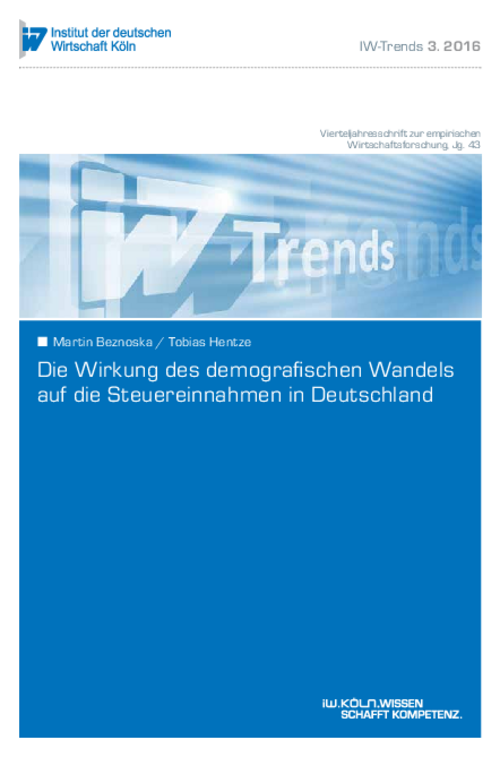As a result of high net immigration, both Germany’s overall population and its workforce potential are currently growing. However, within a very few years this demographic trend will be reversed, leading to a decline in the population as a whole and especially in the number of those gainfully employed. The fall in income tax revenues resulting from a shrinking and ageing society will place a huge strain on government finances, an effect further enhanced by the shift of the tax burden from pension contributions to pension benefits. In 20 years’ time the annual price-adjusted revenue from income tax is simulated to be € 18 billion or almost 7 per cent lower than today.

The Effect of Demographic Transition on Tax Revenues in Germany
IW-Trends


Martin Beznoska / Tobias Hentze: Die Wirkung des demografischen Wandels auf die Steuereinnahmen in Deutschland
IW-Trends

More on the topic

Possible Developments in the Supply of Skilled Workers up to the Year 2040
The German labor market is on the verge of a fundamental upheaval. While the number of people in the labor force has risen steadily in recent decades, it is likely to drop significantly as soon as the baby boomers retire.
IW
The Social Situation of Young People from Non-German-Speaking Families
An analysis of the microcensus shows that in 2017, around 2.4 million children and adolescents in Germany lived in non-German-speaking households. This corresponds to 17.7 per cent of all minors (under the age of eighteen) and 47.0 per cent of those with a ...
IW